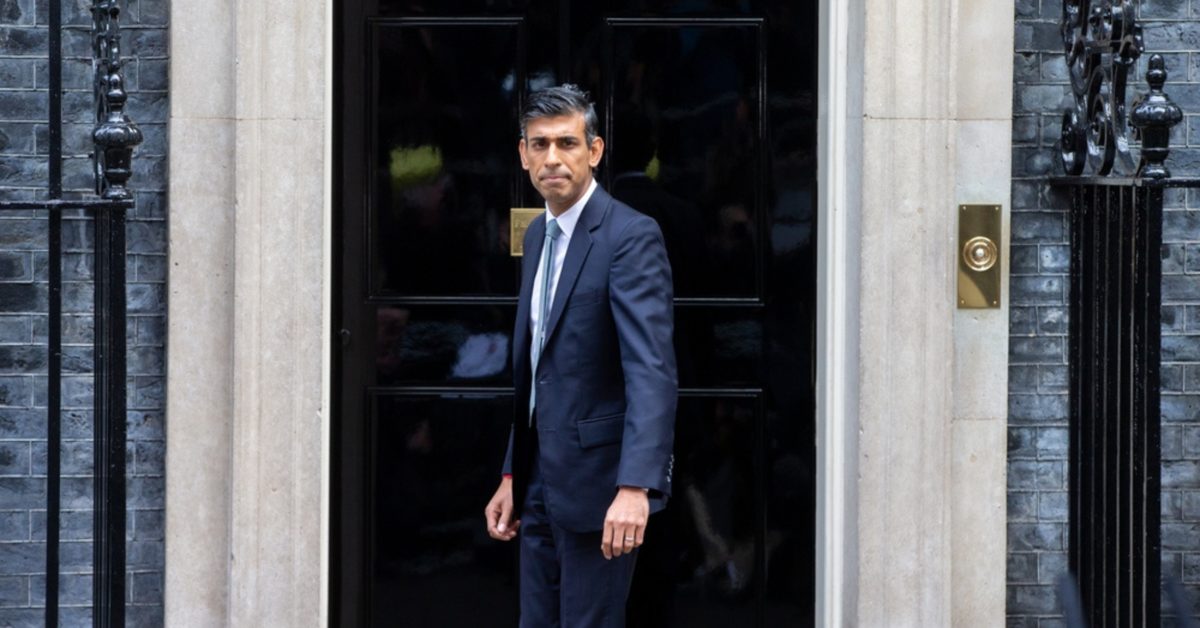Big Bang 2.0? Hunt unveils new Financial Services Reforms
The Chancellor, Jeremy Hunt, has today unveiled much-anticipated reforms to the UK’s financial services sector, in a bid to boost competitiveness and growth across the UK.
In a highly consequential and wide-ranging statement, the Chancellor has put forward thirty proposals, split into four broad buckets:
- A competitive marketplace promoting effective use of capital
- A sector at the forefront of technology and innovation
- A world leader in sustainable finance
- Delivering for consumers & businesses
The Politics
The reforms were initially developed under Kwasi Kwarteng (Liz Truss’s Chancellor) and labelled ‘Big Bang 2.0’ by those close to Kwarteng. Positioning them as a successor to Margaret Thatcher’s deregulation of financial services in 1986. In an effort to distance himself from the turbulence of the Truss government, Hunt has steered clear of this language, calling them “the Edinburgh Reforms”, but he has not watered down the scope or ambition of the package.
Government and industry concern that London is beginning to lag behind New York, Amsterdam and Paris, has been a powerful driver to bring forward this package.
But the ability to improve the UK’s competitiveness in financial services, taking advantage of the regulatory freedom that comes from being out of the EU is a big political win for the government and it is noteworthy that Financial Services was one of the five growth areas that Hunt identified in the Autumn Statement.
Of course, the City losing business to other global financial centres and now being able to look at regulations that are derived from the EU is not a mutually exclusive issue. Making these changes may be an essential measure to maintain London’s position while some of the City’s functions move to centres within the EU single market.
The government wants to make clear this package benefits towns and cities across the UK as part of the continuation of the ‘levelling up’ strategy. And launching it in Edinburgh is also a significant commitment to the union.
Finally, on the politics, the attempted demonstration of the benefits of Brexit has a dual function for both Sunak and Hunt. They both need to show Conservative backbenchers that there will be no ‘going soft’ on Brexit after a series of damaging stories which indicated the UK may seek a ‘Swiss style’ arrangement with the EU which would limit the divergence that many Brexit-supporting MPs want to see. By claiming this package is a Brexit dividend they are looking over their shoulders to the MPs on the green benches behind them as much as they are looking down the river to the City and Canary Wharf.
The Policy
As a Labour source said to EGA, ‘Goodbye, then, to the Parliamentary Commission on Bank Standards, we knew for such a short time.’. The Chancellor’s proposals mark a totemic shift away from the post-2008 crash regulatory landscape, and the reforms that the cross-party PCBS recommended (and the Conservative-led Coalition government accepted in full) to prevent a 2008-style crisis happening again.
Ring-fencing regulations designed to separate banks retail and wholesale arms are to be reviewed. The senior managers and certification regime, designed to more clearly hold senior executives accountable for their role in managing their firms, is likely to be loosened. And the regulators are going to be given secondary objectives to focus on growth and the international competitiveness of the UK industry. While it is important to see the details before casting judgement, all will make those with long memories from the crisis nervous of a return to “light touch regulation”.
The Treasury has been at pains to stress that any changes won’t impact the regulatory safety of the system and will make the sector more ‘agile’ with ‘proportionate’ regulation. However, this will not stop Sunak and Hunt being questioned as to whether they are introducing significant new risks to the financial services system, which could lead to a similar situation in 2008.
Political Commentary
Jeremy Hunt: ‘We are committed to securing the UK’s status as one of the most open, dynamic and competitive financial services hubs in the world. The Edinburgh Reforms seize on our Brexit freedoms to deliver an agile and home-grown regulatory regime that works in the interest of British people and our businesses. And we will go further – delivering reform of burdensome EU laws that choke off growth in other industries such as digital technology and life sciences’.
Andrew Griffith: ‘The UK is a financial services superpower – and we have long benefited from, and are committed to, high quality regulatory standards. Scotland’s role in maintaining our status as the global benchmark for regulation is crucial - with Edinburgh and Glasgow the two largest UK hubs outside of London. Our reforms deliver smarter regulation of financial services that will unlock growth and opportunity in towns and cities across the UK’
Harriett Baldwin MP (Chair of the Treasury Select Committee): ‘There’s lots in here for @CommonsTreasury to scrutinise as these proposals are taken forward’.
Tulip Siddiq (Shadow City Minister): ‘Introducing more risk and potentially more financial instability because you can’t control your backbenchers is this Tory government all over. That this comes after the Tories crashed our economy is beyond misguided. Reforms such as Ring Fencing and the Senior Managers Regime were introduced for good reason. The City doesn’t want weak consolation prizes for being sold down the river in the Tories’ Brexit deal, nor more empty promises on deregulation. Its competitiveness depends on high standards, not a race to the bottom. The next Labour government will give financial services the certainty they need to invest in the jobs and industries of the future through our Green Prosperity Plan, and our ambition to make Britain the post-Brexit, homegrown start-up hub of the world’
View from the City
Antony Hainsworth, financial services regulatory partner at DLA Piper: ‘The Chancellor’s statement on the Edinburgh Reforms answers one of the key questions posed by the Financial Services and Markets Bill, in terms of which pieces of EU onshored legislation might be repealed in full and which might be replaced.
‘Whilst the Packaged Retail and Insurance-based Investment Products (PRIIPs) Regulation was never universally popular across the industry, Key Investor Information Documents (KIIDs) were seen by at least some product manufactures as a neat and compact way for product manufacturers to set out their stall, and dropping PRIIPs in favour of a new direction for retail disclosure was perhaps not at the top of most people’s Christmas list. Any repapering is repapering ultimately, and involves an immediate cost to implement and some may question what benefit that will bring from either a competition perspective or a consumer protection perspective, unless perhaps the move is intended to be a longer term cost-saving one. Coming hot off the heels of the recent FCA Consultation on the Sustainability Disclosure Requirements (SDRs), we are starting to see the UK approach to investor disclosures not so much diverge from the legacy European model, but veer off in a different direction.
‘The suggested changes to the UK Short Selling Regulation and the Securitisation Regulation as being presented as reform rather than repeal, which leaves open the obvious question of how they will be reformed. No one would expect the government to drop “skin-in-the-game” rules in their entirety, not least because memories of the credit crisis are still too recent, but trying to remove some of the direct conflicts that exist with the EU Short Selling Regulation should help remove some of the inefficiencies that come with arrangers and originators having to structure around them.’
Emma Mogford, Fund manager, Premier Miton Monthly Income Fund, Premier Miton Investors: ‘I see this as the beginning of a more positive regulatory environment for banks in the UK. Years of increasing capital requirements drove banks to reduce the riskier parts of their lending and the knock on effect of lower lending had been negative for economic growth. Today’s announcement, combined with the reduction in the extra tax that banks pay, marks a swing in the pendulum towards more supportive regulation and recognises that the banks can now play an important part in reviving the UK economy.’
Daniel Pinto, Founder and Chief Executive of Stanhope Capital Group: ‘For the Big Bang 2.0 not to end up a Big Whimper, the taskforces which are consulting must focus on facilitating a cultural reboot of the City, rather than protecting the status quo.
We need a City which welcomes new, innovative, founder-led businesses – not an old world economy. London is still synonymous with big banks and FTSE100 companies, rather than the capital of venture funding for tomorrow’s businesses. ‘We need a more robust ecosystem of SMEs throughout the country, properly supported by well funded private equity investors. The Solvency II reforms are very welcome in that they will enable insurance companies to allocate more of their assets to this type of investments, for the greater good of the British economy.
‘WA relaxation of some aspects of the MIFID rules which discouraged equity research on small and mid cap stocks over the last few years, would also be beneficial and enable these companies to raise more money in the public markets.
‘Big banking was already riddled with conflicts, some of which led to excessive risk taking and failing to put clients first. Given the history of the big banks and their role in the GFC, any moves to deregulate the Senior Managers Regime and provide greater freedoms must be matched with appropriate guardrails around compliance.’
Details of the Reforms
The most notable changes announced include:
- Reviewing the Senior Managers regime. The regime has since 2016 forced senior executives at banks, building societies and credit unions to take personal responsibility for infractions if they had not taken ‘reasonable steps’ to prevent them. Penalties range from fines to bans. There will be a review from regulators into this system with the Treasury indicating that they saw the current regime as too onerous.
- Updating the ring-fencing regime. The Treasury will revamp the ringfencing rules, a set of regulations brought in by Britain following the 2007-09 financial crisis to make the banking system safer. This regime has forced lenders to legally separate their riskier investment banking businesses from their retail divisions. Some lenders have been forced to comply with the ringfencing rules even though they do not have significant investment banking operations. The government is expected to relax the rules for smaller retail-focused banks.
- Reviewing ‘unbundling’ rules. The government will independently review provisions contained in Mifid-II, a Europe-wide law introduced in 2018. One of the key provisions in Mifid-II related to unbundling, or separating, of buying investment banks' research from costs incurred from the purchase or sale of securities, and was aimed at removing a potential conflict of interest. Many see the current rules as hampering competitiveness, and the government notably pointed out these rules aren’t in practice in the US.
- Reform of short selling regulation. The government is launching a Call for Evidence, seeking views on how to reform the regulation of the practice of short selling (the practice of borrowing shares to sell them, with the goal of buying them back cheaper in future). Some short selling is controversial, as speculators could use it to drive down a company’s share price. However others argue it helps with ‘price discovery’ – showing if a company is overvalued.
- Ensuring a regulatory focus on growth and competitiveness. The government is legislating through the Financial Services and Markets Bill to introduce new secondary objectives for the FCA and PRA to provide for a greater focus on growth and international competitiveness while maintaining their existing primary objectives.
The full list of announcements can be read here.



